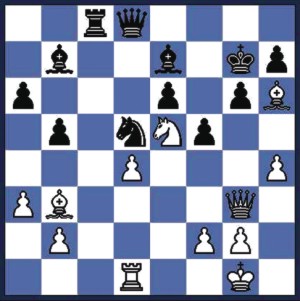|
Time
Out
Classical theory Chess
In
any elementary book on chess you will find enough to make
you understand what really constitutes an advantage over the
board. Things like controlling the centre of the board, bringing
the minor pieces into play early in the game, avoiding unnecessary
pawn moves and queen sorties are some of the basic ideas that
chess writers and teachers attach much importance to. Then
they will tell you not to keep the king in the centre for
too long, and to refrain from moving the same piece many times
in the opening.
All these
are the basic tenets of classical theory which still hold
good. But the mystery of chess is indeed unfathomable; the
apostates are known for their habit of violating theory and
still win beautiful games. For example, the concept of centre
control has undergone considerable change over the decades.
There are some standard openings today in which Black deliberately
allows White to have a broad pawn centre in the hope of undermining
it with timely counterblows. Thus the King's Indian Defence
has emerged as a standard opening system, despite the fact
that the second player is conceding too much ground in the
centre. There are many other opening schemes for Black to
invite the first player to set up a broad pawn centre which
can turn out to be over extended.
The classical
theorists also value the two bishops as a potent weapon .
Again this has a lot to do with the open positions which usually
arise out of the orthodox openings. No doubt , two bishops
can be very strong, but other factors should influence this
assessment.
Dr. Siegbert
Tarrasch, the German master and theorist, was a leading exponent
of the classical school . He was also known for his wit and
great power of observation. He advised his students to "
sit on their hands when victory is in sight". This might
sound very humdrum, but have a look at your games and you
will see his point. How many games have you lost because of
undue haste in a winning position? I'm sure the number is
pretty high, unless you are a grandmaster in the making.
Here
is a game played by Tarrasch.
White-S
Tarrasch
Black-D Janowski
Hastings, 1895
1.d4 d5 2.c4 e6 3.Nc3 Nf6 4.Bg5 Be7 5.Nf3 00 6.Rc1 dxc4 7.e3
c5 8.Bxc4 cxd4 9.exd4 Nc6 10.00 Qa5 11.Bf4 Rd8 12.Nb5 Ne8
13.Be3 a6 14.Nc3 Nf6 15.Qe2 b5 16.Bb3 Bb7 17.Rfd1 Nb4 18.Ne5
Rac8 19.a3 Nbd5 20.Nxd5 Nxd5 21.Rxc8 Rxc8 22.Qh5 g6 23.Qf3
f5 24.Qg3 Kg7 25.h4 Qd8 26.Bh6+ Kg8 27.Nxg6 Bf6 28.Ne5+ 1-0

Position
after 26.Bh6+
-PATZER
Copyright
(R) thedailystar.net 2004
| 